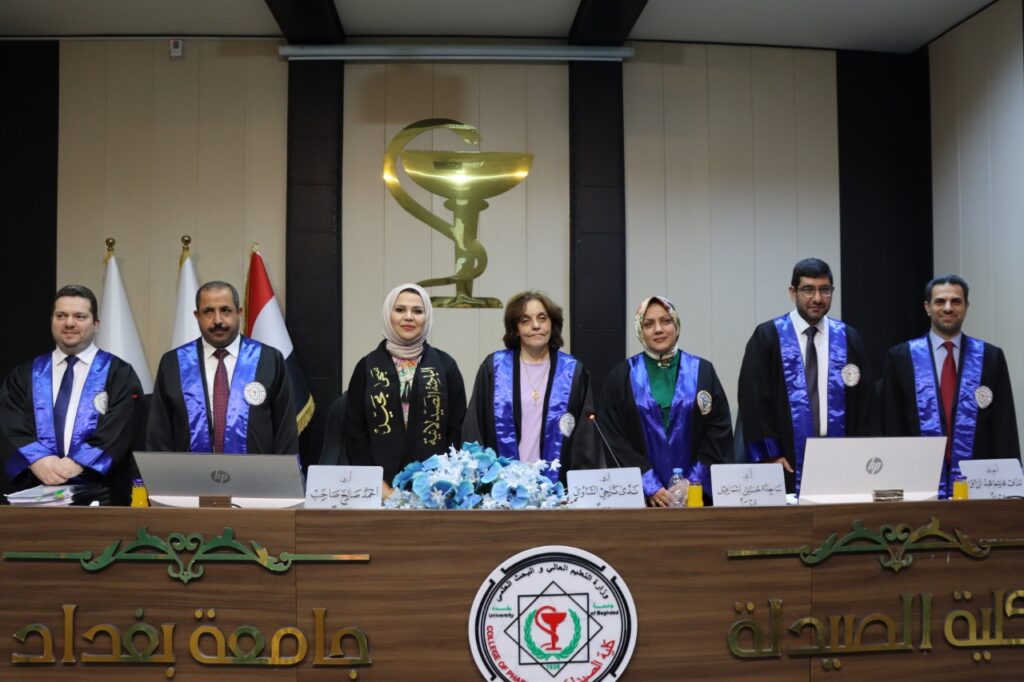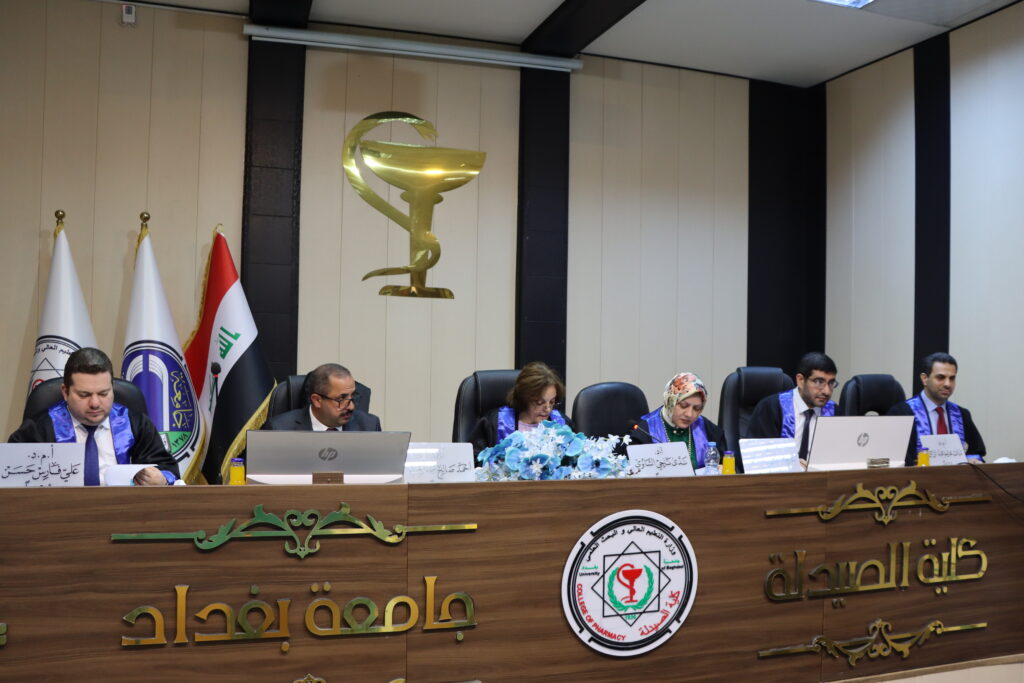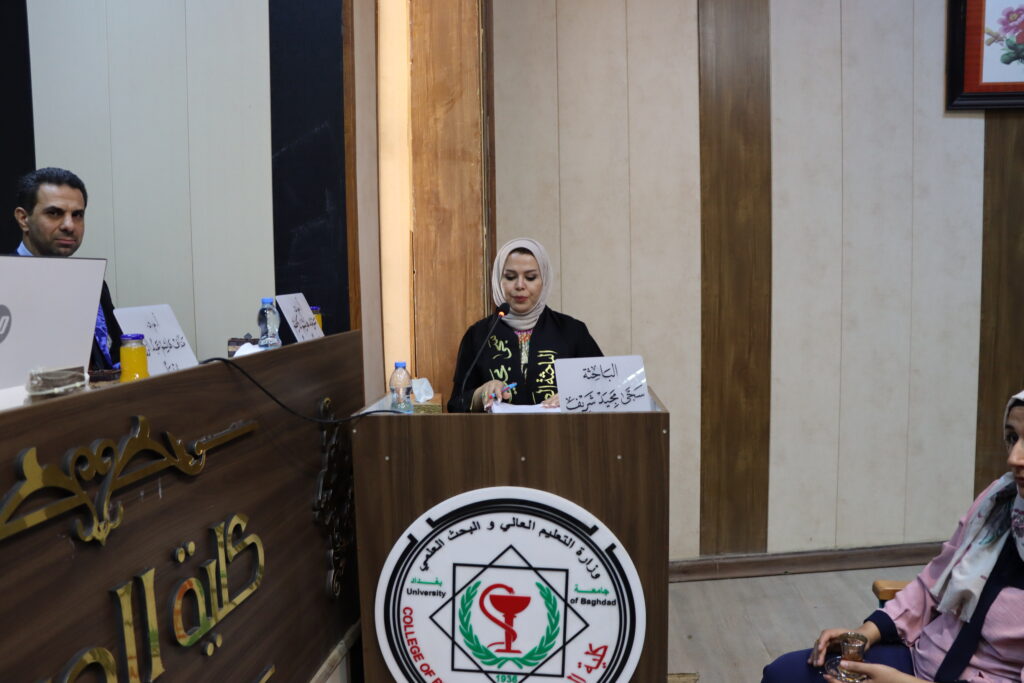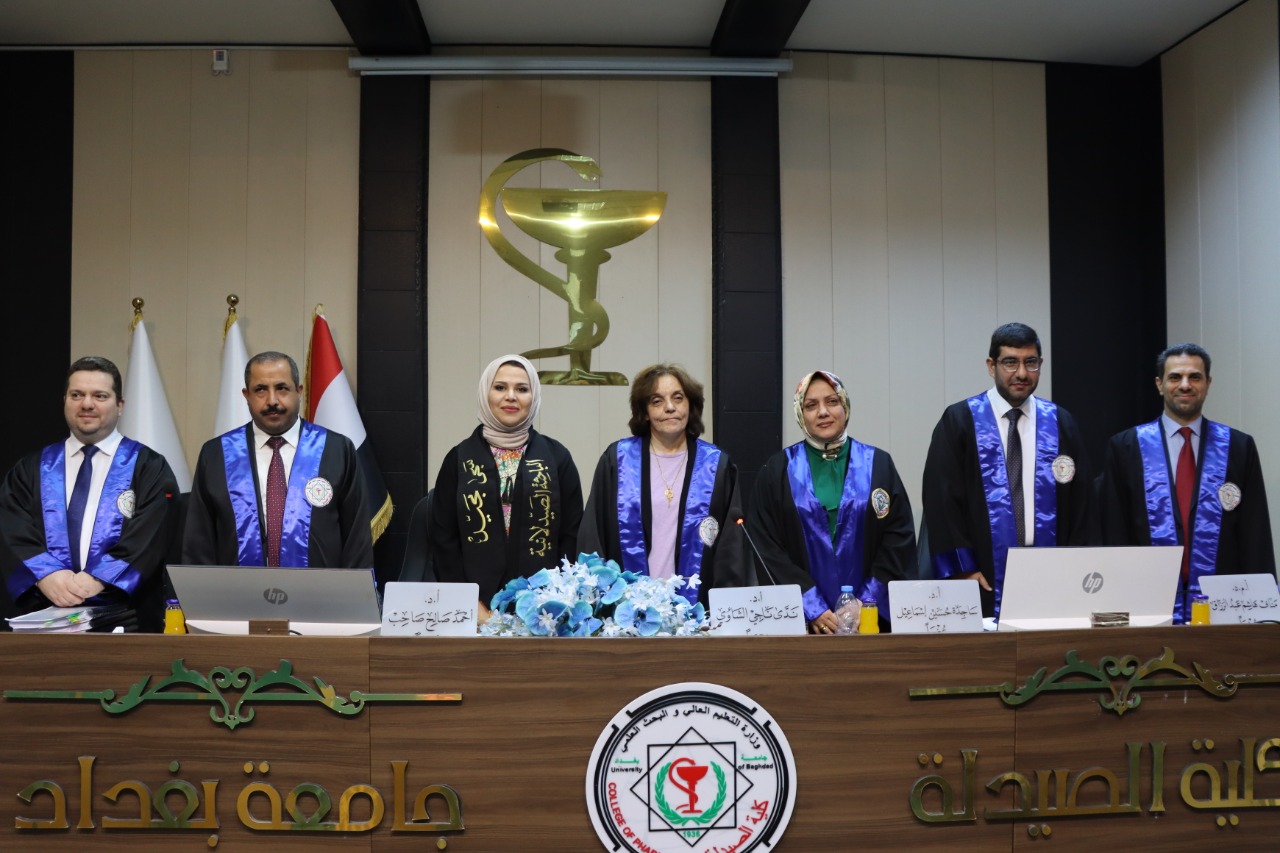The Faculty of Pharmacy discussed the Ph.D. thesis entitled “The Possible Anti-inflammatory and Protective Effect of L-Carvone and Gentiopicroside on Lipopolysaccharide-Induced Acute Kidney Injury in Mice “by Saja Majeed Shareef and her supervisor, Associate Proffessor Dr. Sarmed H. Kathum Alkhateeb, in the Department of Pharmacology and Toxicology. The thesis aimed to evaluate the anti-inflammatory and protective effects of L-carvone and gentiopicroside in acute kidney injury induced by lipopolysaccharide in mice by measuring serum urea and creatinine levels in the blood to assess renal function. The levels of kidney injury molecule-1, Toll-like receptors 4, nuclear factor kappa light chain enhancer of activated B cells, interferon regulatory factor 3, activator protein 1, tumor necrosis factor-alpha, interleukin 1β, and inducible nitric oxide synthase, and histopathological examination of the kidney. For this study, Sixty-four albino male mice weighing (20-30 gm) were selected. Mice were allocated randomly into eight groups, with eight mice for each group. (Group I), a control group in which intraperitoneal injections of normal saline were administered to mice. (Group II), a lipopolysaccharide model group in which an intraperitoneal injection of 10 mg/kg lipopolysaccharide was administered to mice. (Group Ⅲ), a vehicle control group in which mice received corn oil orally for 5 consecutive days, followed by an intraperitoneal injection of lipopolysaccharide 10mg/kg as a single dose. (Group IV), L-carvone treated group in which mice were orally administered 25 mg/kg L-carvone for 5 consecutive days then intraperitoneal injection of lipopolysaccharide 10mg/kg as a single dose. (Group V), an L-carvone treated group in which mice were orally administered for 5 consecutive days a 50 mg/kg L-carvone then intraperitoneal injection of Lipopolysaccharide 10mg/kg as a single dose. (Group VI), an L-carvone treated group in which mice were orally administered 100 mg/kg L-carvone for 5 consecutive days, followed by an intraperitoneal injection of lipopolysaccharide at 10 mg/kg as a single dose. (Group VII), a gentiopicroside-treated group in which mice were orally administered 40 mg/kg gentiopicroside for 5 consecutive days then intraperitoneal injection of lipopolysaccharide 10mg/kg as a single dose. (Group VIII), a gentiopicroside-treated group in which mice were orally administered 80 mg/kg gentiopicroside for 5 consecutive days, then intraperitoneally injected with at 10 mg/kg of lipopolysaccharide as a single dose.The results showed that the treatment with L-carvone and gentiopicroside has a promising pharmacological intervention in the inhibition of LPS-induced kidney injury in a mouse model through its potent reno-protective and anti-inflammatory effects. These ameliorative effects have been achieved by downregulating both TLR4-AP1-NF-ĸB and TLR4–IRF3–NF-ĸB signaling cascades. These findings provide novel insights into a promising candidate for treating kidney damage caused by sepsis.





